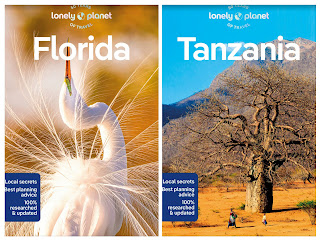Through the Mother of God
South America, where the land shifts from the icy grip of Patagonia to the steamy embrace of the Amazon, has more layers than an onion, and twice the bite. It's a continent that wears its diversity like a badge of honor, with countries that speak in a hundred different tongues, each with its own stories, traditions, and quirks. From rivers that could drown a small country to cities that hum with colonial ghosts, South America is a place that’s as rich in culture as it is in natural splendor. Brazil’s carnival beats like a heart in Rio, the Amazon slinks through the jungle like a secret, and Machu Picchu stands as a timeless reminder of the ancient world, all while the Andes tower above, watching over it all.
Enter The Raven Brothers…
This adventurous writing duo embarks on a witty journey across South America. Their memoir Carnival Express follows their overland trek along the Trans-Oceanic Highway, from the Andes to the Peruvian Amazon. The brothers seek inspiration for a new book and the ultimate carnival experience, exploring the ancient world of the Inca, swimming with caimans in the Madre de Dios, encountering panic in the Pantanal, catching the Rolling Stones in Rio, and concluding in Olinda’s soulful carnival.
Beyond the humor, the book highlights a significant issue—the destruction of the Amazon Rainforest. During a 32-hour bus ride from Cusco to Puerto Maldonado, the brothers witness firsthand the devastating effects of the Trans-Oceanic Highway, which has transformed Puerto Maldonado and the surrounding rainforest. While the road has spurred economic growth and improved trade, it has also led to illegal logging, mining, and deforestation, threatening both wildlife and indigenous cultures. Species like jaguars, giant river otters, harpy eagles, scarlet macaws, and various primates face increased risks due to habitat loss. The brothers reflect on the once-common sight of parrots flying alongside the bus, a sight now rarer due to the highway’s impact on the environment.
The Asháninka people, one of the largest indigenous groups in the Peruvian Amazon, are also affected. Living in the dense rainforests near the highway, the Asháninka have seen illegal settlers, loggers, and miners encroach on their land, leading to disputes over land rights and access to resources. The brothers explore the Asháninka’s fight to protect their territory and preserve their cultural heritage.
While the highway has improved infrastructure between Peru and Brazil, it has accelerated the destruction of the environment. Balancing development with environmental conservation remains a pressing challenge, one that will shape the region’s future.



